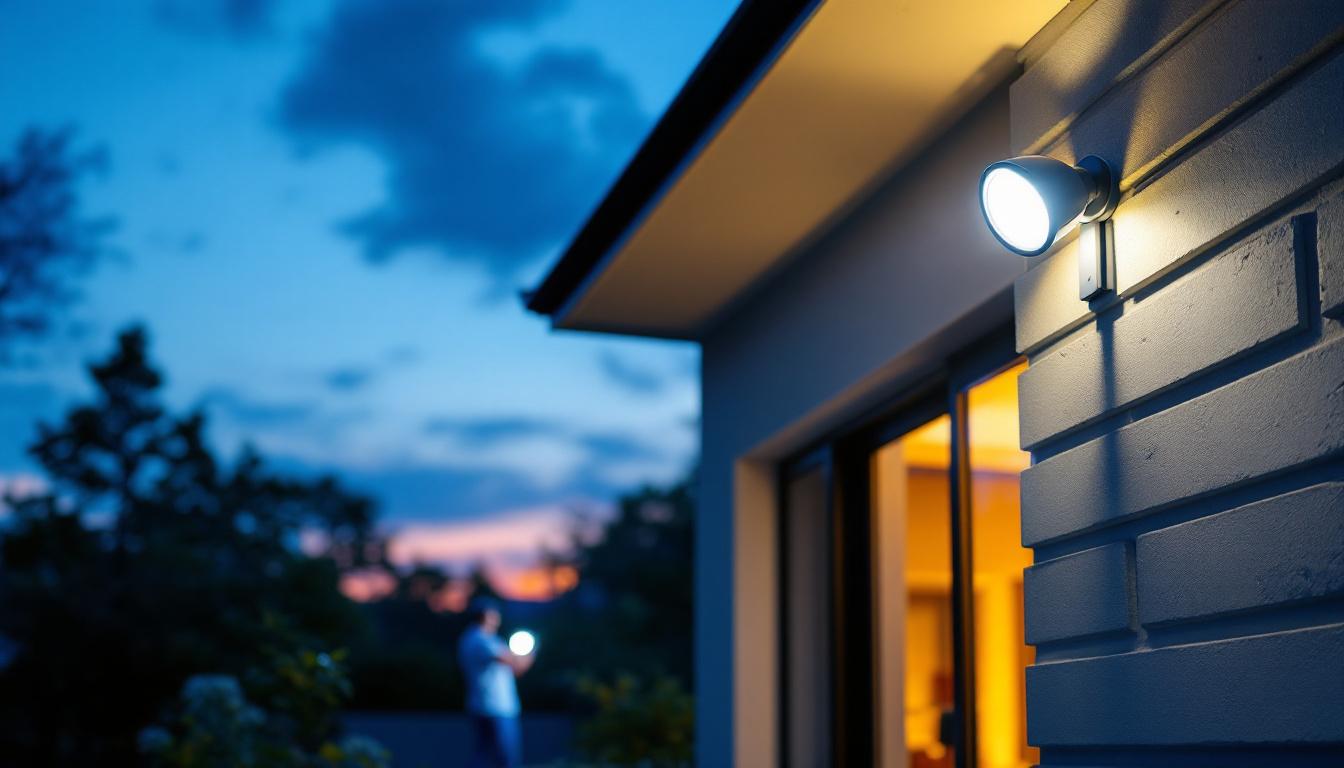
Lighting contractors play a pivotal role in ensuring that spaces are not only functional but also aesthetically pleasing. As the demand for innovative lighting solutions continues to grow, it becomes essential for contractors to stay informed about best practices. This article outlines the do’s and don’ts that can help lighting contractors excel in their projects and build lasting relationships with clients.
One of the most critical aspects of being a successful lighting contractor is understanding the client’s vision. Whether it’s for a residential space, commercial establishment, or an outdoor environment, each project has unique requirements. Engaging in open discussions with clients about their preferences, styles, and functional needs can lead to a more tailored lighting solution.
It’s also beneficial to ask probing questions that can uncover hidden desires or concerns. For example, understanding whether the client prefers a warm or cool lighting tone can significantly influence the choice of fixtures and bulbs. By actively listening and clarifying their vision, contractors can create designs that resonate with the client’s expectations. Furthermore, visual aids such as mood boards or lighting samples can be instrumental in bridging the gap between the client’s ideas and the contractor’s implementation. This collaborative approach not only fosters trust but also ensures that the final outcome aligns closely with the client’s aspirations, making them feel valued and heard throughout the process.
The lighting industry is constantly evolving, with new technologies and design trends emerging regularly. Staying updated on these trends is crucial for contractors who want to offer the best solutions to their clients. This includes familiarizing oneself with energy-efficient lighting options, smart home integrations, and the latest design aesthetics.
Attending industry trade shows, participating in workshops, and subscribing to relevant publications can provide valuable insights. Moreover, networking with other professionals in the field can foster collaborations and inspire innovative ideas. By keeping abreast of industry developments, contractors can position themselves as knowledgeable experts, gaining the trust of clients. Additionally, understanding the environmental impact of lighting choices can help contractors advocate for sustainable practices, such as using LED fixtures or solar-powered options, which are increasingly appealing to eco-conscious clients. This not only enhances the contractor’s portfolio but also contributes positively to the broader conversation about sustainability in design.
Safety should always be a top priority for lighting contractors. This involves adhering to local building codes, electrical regulations, and safety standards. Ensuring that all installations are compliant not only protects the contractor but also safeguards the client and the end-users.
Additionally, using high-quality materials and fixtures can prevent potential hazards. Conducting thorough inspections and testing of installations can help identify any issues before they become problematic. By prioritizing safety and compliance, contractors can enhance their reputation and reduce the risk of liability. Furthermore, educating clients about the importance of regular maintenance checks can extend the life of their lighting systems and ensure continued safety. Providing clients with a maintenance schedule or tips on how to care for their lighting can also demonstrate a contractor’s commitment to their well-being, fostering long-term relationships that can lead to repeat business and referrals.
Planning is a crucial step that should never be underestimated. Rushing into a project without a comprehensive plan can lead to costly mistakes and unsatisfactory results. Contractors should take the time to develop a detailed project plan that outlines timelines, budgets, and resource allocations.
Creating a lighting layout that considers factors such as room dimensions, furniture placement, and the intended use of space is essential. This not only ensures that the lighting is effective but also enhances the overall aesthetic appeal. By investing time in planning, contractors can streamline the execution process and minimize the likelihood of errors.
Moreover, it’s beneficial to involve clients in the planning phase. Understanding their vision and preferences can help tailor the lighting design to their specific needs, resulting in a more personalized outcome. Utilizing design software or 3D modeling tools can also provide clients with a visual representation of the proposed lighting scheme, making it easier to gain their approval and make necessary adjustments before installation begins.
Effective communication is vital in any contracting role, and lighting contractors are no exception. Failing to communicate clearly with clients, suppliers, and team members can lead to misunderstandings and project delays. It’s essential to maintain open lines of communication throughout the project lifecycle.
Regular updates on project progress, potential challenges, and changes in scope can help manage expectations and build trust. Additionally, being receptive to feedback from clients can lead to improvements and refinements in the project. By fostering a culture of communication, contractors can enhance collaboration and ensure smoother project execution.
Incorporating project management tools can facilitate better communication as well. These tools can help track tasks, deadlines, and responsibilities, ensuring everyone is on the same page. Scheduling regular check-ins or meetings can also provide an opportunity to address any concerns promptly and keep the project moving forward efficiently. When all parties are well-informed, it not only enhances productivity but also contributes to a more harmonious working environment.
Many contractors focus on the installation phase and may overlook the importance of post-installation support. Providing clients with guidance on how to operate and maintain their new lighting systems can significantly enhance their experience. This includes offering tips on bulb replacement, dimmer settings, and energy-saving practices.
Furthermore, being available for follow-up questions or concerns can demonstrate a commitment to customer satisfaction. This level of support can lead to repeat business and referrals, as satisfied clients are more likely to recommend the contractor to others. By prioritizing post-installation support, contractors can solidify their reputation as reliable professionals.
Additionally, offering maintenance packages or periodic check-ins can further enhance client relationships. These services not only ensure that the lighting systems are functioning optimally but also provide an opportunity for contractors to showcase their expertise and stay connected with clients. Educating clients about the latest advancements in lighting technology can also position contractors as knowledgeable resources, fostering long-term loyalty and trust.
Trust is a cornerstone of any successful contractor-client relationship. Lighting contractors should strive for transparency in all dealings, from pricing to project timelines. Providing detailed estimates that outline costs associated with materials, labor, and any potential additional expenses can help clients feel more informed and secure in their decisions.
Moreover, being upfront about potential challenges or delays can prevent misunderstandings later on. Clients appreciate honesty and are more likely to remain loyal to contractors who demonstrate integrity. By fostering a transparent environment, contractors can build lasting relationships based on trust and mutual respect.
Every client is unique, and tailoring the experience to meet individual needs can set a contractor apart from the competition. This can involve customizing lighting solutions that reflect the client’s personal style or providing options that align with their budget and preferences.
Taking the time to understand the client’s lifestyle and how they interact with their space can lead to more effective lighting designs. For instance, a family with young children may require different lighting solutions compared to a couple who enjoys hosting dinner parties. By offering personalized experiences, contractors can enhance client satisfaction and loyalty.
The selection of lighting fixtures is a critical decision that can impact both functionality and aesthetics. Contractors should consider factors such as the purpose of the space, the desired ambiance, and energy efficiency when choosing fixtures. For example, recessed lighting may be ideal for a modern kitchen, while pendant lights could enhance a dining area’s atmosphere.
Additionally, understanding the different types of bulbs available—such as LED, incandescent, and fluorescent—can help contractors make informed recommendations. Each type has its advantages and disadvantages, and educating clients about these options can lead to better choices that align with their needs.
As technology advances, smart lighting solutions have gained popularity among homeowners and businesses alike. These systems allow users to control their lighting through apps, voice commands, and automation. Contractors should familiarize themselves with various smart lighting products and systems to offer clients the latest innovations.
Integrating smart lighting can enhance convenience and energy efficiency, making it an attractive option for many clients. Moreover, educating clients on how to use these systems effectively can add value to the service provided. By embracing technology, contractors can position themselves as forward-thinking professionals in the lighting industry.
Lighting contractors have a unique opportunity to transform spaces through innovative lighting solutions. By adhering to the do’s and don’ts outlined in this article, contractors can enhance their skills, build strong client relationships, and deliver exceptional results. Understanding clients’ visions, staying updated on industry trends, prioritizing safety, and maintaining effective communication are all essential components of a successful lighting contracting business.
Ultimately, the goal is to create environments that not only meet functional needs but also elevate the overall experience for users. As the lighting industry continues to evolve, contractors who embrace change and prioritize client satisfaction will thrive in this dynamic field.
Ready to take your lighting projects to the next level? At LumenWholesale, we provide lighting contractors like you with the highest quality, spec-grade lighting products at prices that can’t be beaten. Say goodbye to local distributor markups and hello to our extensive selection that meets rigorous industry standards. With free shipping on bulk orders, you can trust that you’re getting premium lighting solutions at the best value, with no hidden fees. Elevate your lighting game and create stunning, functional spaces with the reliability and performance of LumenWholesale products. Discover wholesale lighting at the best value today and make every project shine.

Discover essential insights for lighting contractors in our guide to outdoor lighting for houses.

Discover how LED exterior spotlights can transform your business operations.

Discover how colored lighting is revolutionizing the work of lighting contractors.

Discover how explosion-proof lamps can give you a competitive edge in securing more lighting contracts.